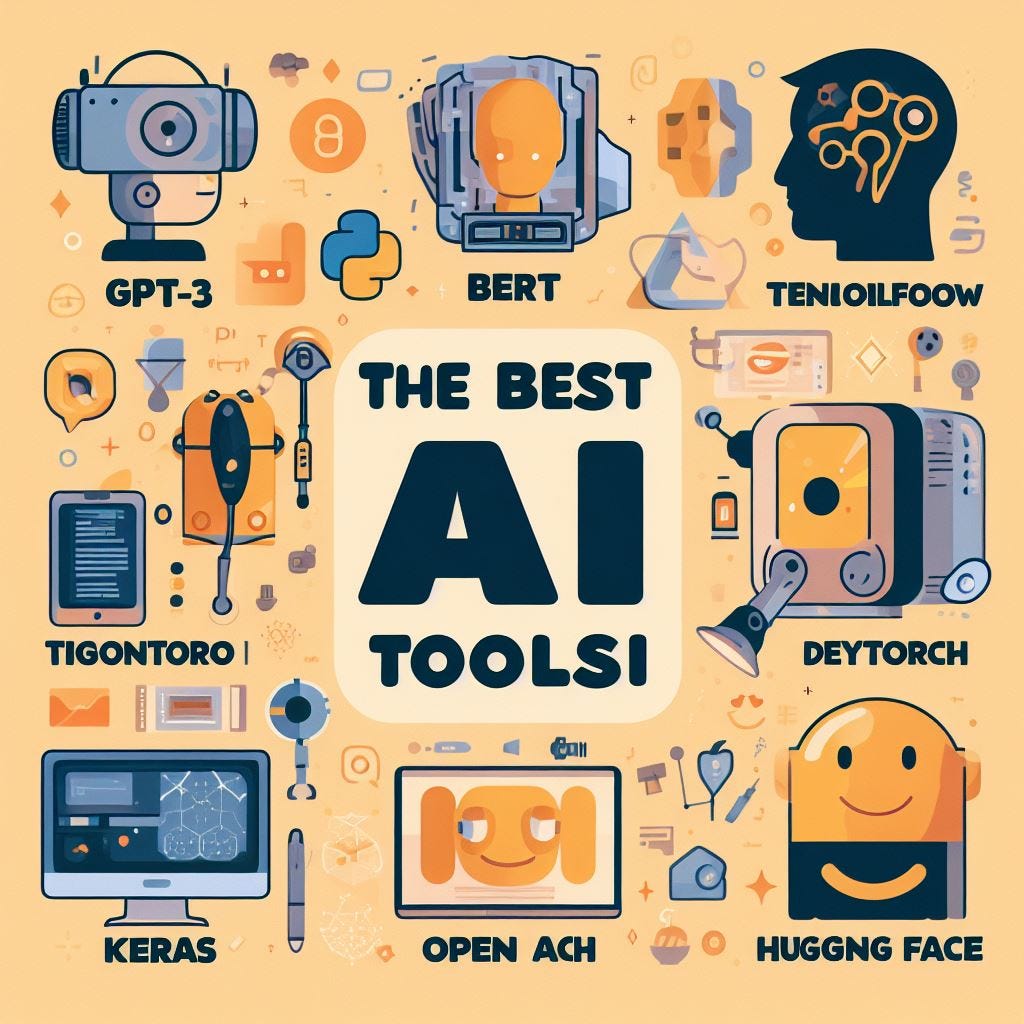From AI Assessing Risks to AI Enabling Augmented Experiences - Emerging Technologies Reshape the World
Lung Cancer Predictions, Military Robotics and Personalized Betting: AI Advances Transform Healthcare, Defense and Leisure
AI Advances Reshaping Healthcare, Defense, and Leisure
• AI system screens routine chest X-rays to flag high lung cancer risk in nonsmokers - allows early detection without invasive tests
• Pentagon develops AI "killer robots" to autonomously target enemies; resists ethical limits on lethal autonomous weapons
• Sports betting platforms use AI to deliver personalized, tailored experiences based on user patterns
• Machine learning algorithms analyze individual interests to customize betting options, promotions and content
• Goal is to drive stronger engagement amid sports betting frenzy as more states legalize wagering
• Responsible gambling advocates warn against treating sports betting as a source of income
6 OF THE BEST AI TOOLS
HEADLIME IS THE GO-TO GPT-3 TOOL FOR MARKETERS.
WRITESONIC IS ONE OF THE BEST ARTIFICIAL INTELLIGENCE-POWERED COPYWRITING GPT-3 TOOLS.
Unleash Your Creativity with These 10+ Amazing Free AI Art, Music, and Video Tools
Transform Photos and Videos into 3D Scenes, Generate Original Music, and More with Cutting-Edge AI
AI System Predicts Lung Cancer Risk in Nonsmokers Using Chest X-Rays
A new AI system called CXR-Lung-Risk shows promise for assessing lung cancer risk in people who have never smoked or smoked very little. Researchers developed the system using over 147,000 chest X-rays and found it was able to flag patients at high risk for lung cancer.
The CXR-Lung-Risk AI reviews chest X-rays for subtle patterns associated with lung cancer development. In a study of 17,400 never-smokers, the system flagged 28% as high-risk. Within this high-risk group, 2.9% were subsequently diagnosed with lung cancer - more than double the rate typically used to recommend lung cancer screening.
While lung cancer screening is primarily aimed at smokers and ex-smokers, 10-20% of lung cancers occur in nonsmokers. Lung cancer often presents at a later stage in never-smokers due to a lack of risk prediction tools.
The CXR-Lung-Risk method only requires a chest X-ray, which avoids the use of more radiation-intense CT scans or other involved testing. This AI approach makes use of abundant historical chest X-ray data that exists in medical records of nonsmokers who may be at elevated risk.
The CXR-Lung-Risk system appears to identify a high-risk subset of never-smokers who may benefit from closer surveillance or even lung cancer screening with low-dose CT scans. More research and prospective trials are still needed to validate the performance across diverse real-world clinical settings. But it shows potential for improving early lung cancer detection using routine chest X-rays in nonsmokers.
US Resists Calls for Limits on AI “Killer Robots” Capable of Autonomous Lethal Force
The US military is moving forward with developing artificial intelligence systems that could autonomously decide to use lethal force against human targets. Along with nations like China and Israel, the Pentagon aims to deploy drone swarms and other weapons powered by AI for autonomous targeting. However, the US rejects calls by other nations and critics to restrict or ban these so-called “killer robots” over ethical and security concerns about handing life-and-death decisions to machines.
Lethal autonomous weapons that use AI to select and engage targets are drawing alarms from AI experts and human rights groups. Opponents argue the technology crosses a moral threshold by allowing drones and other military systems to make independent judgments about killing humans, rather than having a human operator decide. At the UN, countries like Austria are pushing for a binding treaty that would curtail or govern the use of autonomous lethal force.
The US maintains that autonomy will be critical for military drones and robots to operate faster than human controllers can manage. Pentagon officials contend that AI killer weapons under human supervision will be necessary to match rival superpowers numerically and technologically. Though the ethical debate continues, the US Department of Defense is already working to network drone swarms capable of coordinating autonomous attacks.
Russia, Australia and other military powers have resisted signing any treaty limiting killer robots or autonomous weapons. But AI technology enabling machines to take human lives has been called one of the most important ethical dilemmas ahead for society. Opponents counter that autonomous lethal weapons could spiral conflicts out of control and lead to unintended deaths without human judgment. As the technology races forward, worldwide agreement on guidelines and safeguards has remained elusive so far.
AI Drives Hyper-Personalized Sports Betting Experiences
Artificial intelligence and machine learning are rapidly changing the world of sports betting, allowing operators to offer hyper-personalized experiences tailored to each user’s unique interests and patterns. As more states legalize sports wagering and new platforms launch, AI-powered recommendation engines leverage data to customize betting options, promotions, content and more.
Major events like the Super Bowl and March Madness continue to draw record betting volume as legalization spreads. Now, AI can analyze user behavior on sports betting apps to curate individualized interactions. Platforms are integrating algorithms to track preferences on leagues, teams, bet types, past activity and other attributes. In real-time, the technology surfaces personalized betting lines, prop bets, promotions and content to match.
Developers like SharpLink aim to launch comprehensive “recommendation engines” for operators such as SaharaBets. Their BetSense product captures account details then monitors user activity over time. By sensing favorite sports, odds types, risk tolerance and more nuances, the machine learning model tailors the experience around individual interests. Real-time AI adjusts betting options and other features as games unfold.
The goal is to make sports betting feel more customized and responsive to customers, rather than a generic transactional experience. With AI learning the nuances of each bettor, platforms can optimize promotions and incentives around personal behaviors. Legal operators also emphasize that responsible gambling means never treating wagering as a source of income.
While still nascent, AI-powered personalization aims to drive stronger engagement as the US sports betting industry swells to new heights. Legal wagering has accelerated from a $300 million market in 2018 to as much as $8 billion on this year’s Super Bowl alone. With 36 states moving toward legal sports betting, AI and machine learning will likely prove essential for platforms to optimize experiences at scale across millions of users with distinct interests.
Your own personal army of bots, continuously producing VIDEO CONTENT across all social media platforms.
Generating TRAFFIC, LEADS, and attracting CLIENTS, all for YOU!
Sit back, RELAX. Let Artificial Intelligence do the heavy lifting FOR YOU.
Your business transformed, a powerhouse of wealth, forging a secure future for you and your family.
But BEWARE… Those hesitant to adopt AI risk falling behind, their income dwindling, struggling to provide…
Don’t get left behind! Embrace the future.
Join our AI Creators Club.
*All images above were generated with AI
Add To Cart
Your initial payment will be $1.
After 30 days, your subscription will be renewed monthly at $37/month.
You are basically are getting access to everything for only $1 for an entire month.
No contract, no obligations. You can cancel any time.
















